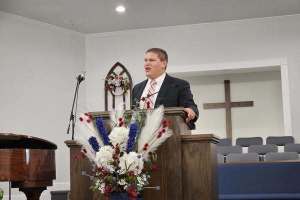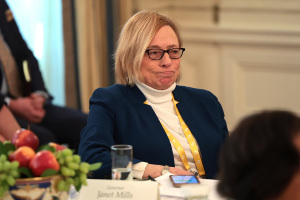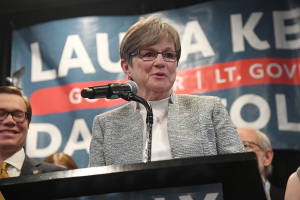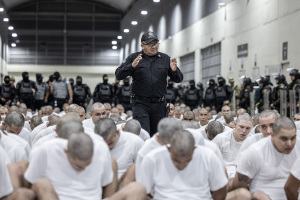Survey: Religion Affects Willingness to Vote for Non-White Candidate
Several religious aspects impacted the willingness of non-Hispanic white voters to support a non-white presidential candidate, a new Baylor Religion Survey found.
While religious service attendance had no effect on this group's openness to vote across racial lines, the survey found that religious affiliation, their view of the Bible and the racial composition of congregations did.
About eight out of 10 whites affiliated with Catholic or Protestant churches said they would vote for a racial minority candidate, if their party nominated the person, according to the survey conducted by the Gallup Organization for Baylor University's Institute for Studies of Religion.
Those with no religious affiliation were more likely to support a non-white candidate. Nine out of 10 white respondents with no religious affiliation said they would vote for someone outside of their race.
A white voter's interpretation of the Bible also affected the person's likelihood to vote for a racial minority candidate. Those who held more literal views of the Bible were more unwilling to vote across racial lines, the survey showed.
The survey, based on responses from 1,325 non-Hispanic white Americans, asked: "If your party nominated a member of a racial minority for President, would you vote for him or her?"
The question comes weeks ahead of the historic presidential election when, for the first time in U.S. history, an African-American will be on the ballot as a major political party's nominee.
Eighty-four percent of white Americans said they would vote for a racial minority candidate for president, according to the survey. But the voting decision differed depending on the respondent's religion, age, education, income and political party.
The religious aspect with the greatest impact on white voters was the racial composition of the congregation they belong to.
The survey found that white voters who belonged to a predominantly white congregation were among the least likely of all respondents to say they would vote for a non-white presidential candidate.
Advanced statistical analysis shows that whites in racially homogeneous white churches are two times less likely to vote for a racial minority presidential candidate, said Dr. Kevin D. Dougherty, an assistant professor of sociology at Baylor who specializes in religion, organizations, race and ethnicity.
The more homogeneously white a congregation is, the less likely the white respondent was to support a racial minority candidate, the survey found.
This statistic was found after controlling other characteristics such as age, education, income, political party, religious affiliation and view of the Bible.
"For many church-going whites, attending religious services does not bring them into contact with persons of other racial backgrounds," Dougherty said. "It is easy to be distrustful of another group of people when someone is not personally acquainted with anyone from that group. The 2008 presidential election will test the consequences of America's continued religious segregation by race."
Besides being a member of a more racially diverse congregation, those younger in age or with a higher level of education or income were more likely to say they would vote for a non-white candidate for president, according to the survey.
Nine out of ten persons aged 18 to 30 said they are willing to vote for a racial minority candidate for president. In comparison, 76 percent of persons aged 65 and older said the same.
"Not surprisingly, Democrats showed greater willingness to vote for a racial minority candidate for president than did Republicans," Dougherty added. "By fall 2007, Sen. Barack Obama was already a recognized candidate for president in the Democratic Party, although not the frontrunner. The response of Democrats to this survey question may relate to their positive regard for a particular candidate rather than the issue of race more generally."
The survey is part of findings from the Baylor Religion Survey that measured the depth and complexity of religious life in America. The findings were published in What Americans Really Believe by Dr. Rodney Stark. The second wave of the survey was released Sept. 18 in Washington, D.C.





























